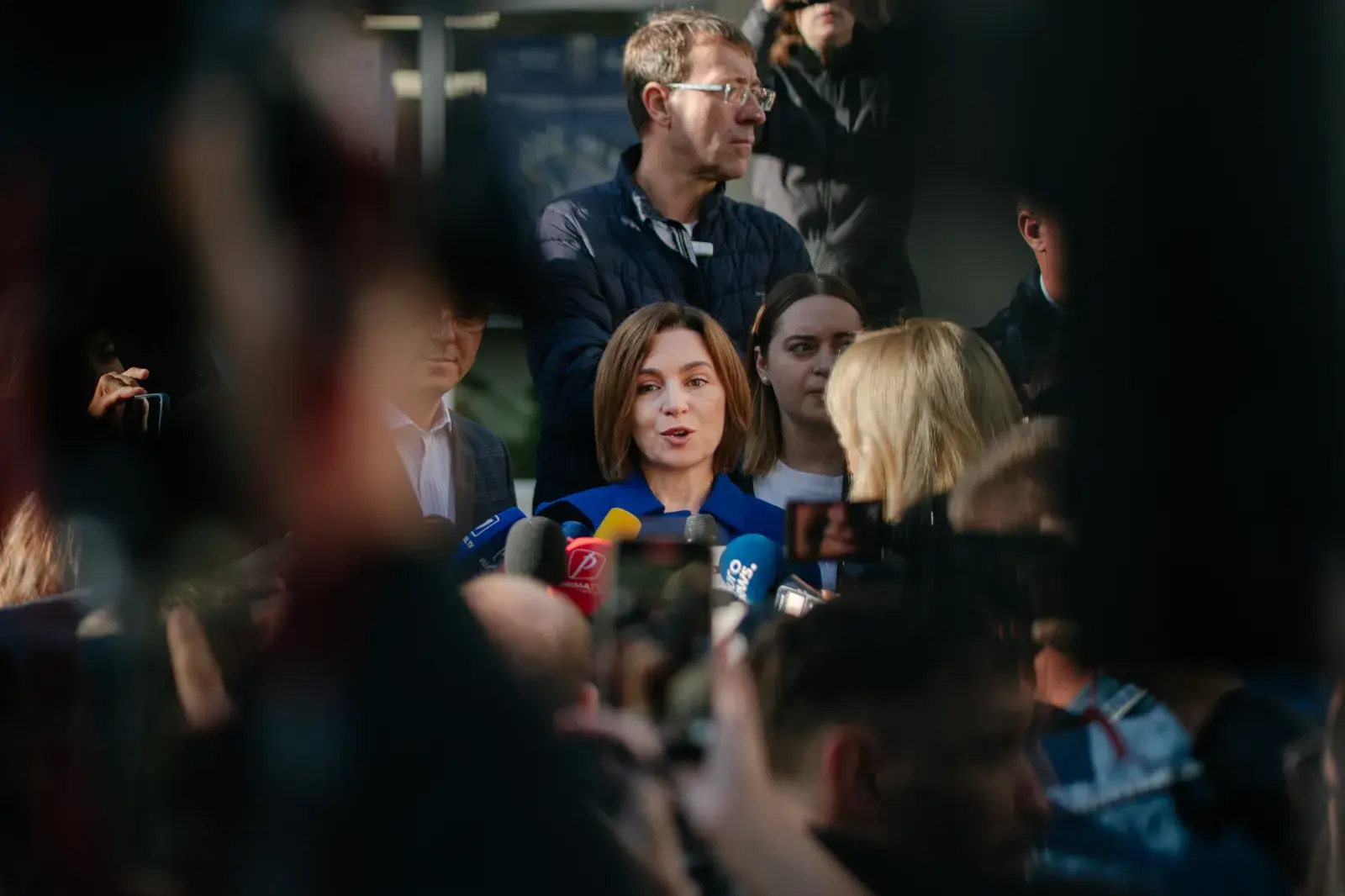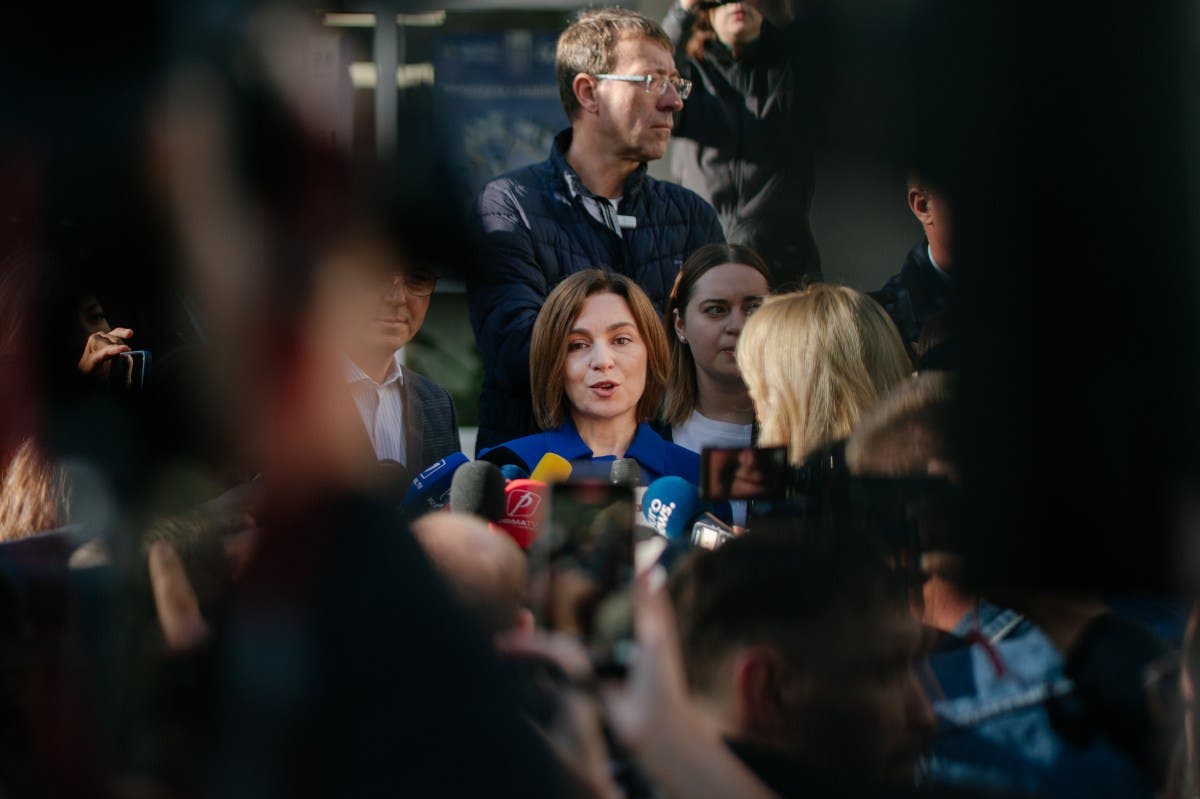Moldova’s pro-European Union (EU) Party of Action and Solidarity (PAS) won a parliamentary majority in legislative elections watched closely by the Kremlin, securing more than double the vote of the pro-Russian Patriotic Electoral Bloc (BEP).
Why It Matters
Sunday’s general election, seen as a stark choice between a path to EU membership or closer ties with Russia, was marred by allegations of Russian interference. The Eastern European state borders Ukraine, where a war following Russia’s 2022 full-scale invasion is still being fought. A breakaway eastern Moldovan region called Transnistria hosts Russian troops.
Moldova has been shifting to the West, developing closer ties with NATO, though it remains constitutionally neutral, and it is seeking membership of the EU.
What To Know
With nearly all polling station reports counted, electoral data showed the governing PAS had 50.16 percent of the vote, while the pro-Russian Patriotic Electoral Bloc has 24.19 percent, the Central Election Commission said on its website.
The Russia-friendly Alternativa bloc came third with 7.97 percent of the vote, followed by the populist Our Party, with 6.20 percent. The right-wing Democracy at Home party won 5.62 percent of the vote, which is enough to enter parliament.
Cristian Cantir, a Moldovan associate professor of international relations at Oakland University, told the Associated Press that PAS’s victory is “a clear win for pro-European forces in Moldova, which will be able to ensure continuity in the next few years in the pursuit of their ultimate goal of EU integration.”
Election day was marked by a string of incidents from bomb threats at several polling stations to cyberattacks on electoral and government infrastructure.
Opinion polls before the election had put PAS, the party of President Maia Sandu, and the Patriotic Electoral Bloc neck and neck, with neither expected to get close to a majority. So the result will be a relief for the government and its European partners, and it will enable the government to press on with its aim of EU membership by 2030.
Before the vote, Sandu had warned of Russian meddling to influence the outcome of the election. She said Russia was spending “hundreds of millions of euros” on its influence campaign.
Russia consistently denied it was interfering in Moldova’s election.
Following Russia’s invasion of Ukraine in 2022, Moldova applied to join the EU. It was given candidate status later that year and, in 2024, the EU agreed to open accession negotiations, further increasing tensions with Russia.
The Russian Foreign Intelligence Service (SVR) said last week NATO military units were massing in Romania close to the Moldovan border as part of a bid by the European Union to “occupy” Moldova, according to TASS, Moscow’s state news agency.
The EU was “determined to keep Moldova within the framework of their Russophobic policies,” the Russian intelligence service said in a report. NATO says it fully respects Moldova’s constitutional neutrality.
What People Are Saying
Sandu, while casting her vote on Sunday in the capital Chisinau, said: “Moldova will have the chance to continue to strengthen its democracy, to protect its space, and to continue its EU integration path.”
Cantir said: “A PAS majority saves the party from having to form a coalition that would have most likely been unstable and would have slowed down the pace of reforms to join the EU,” he said, adding that “Moldova will continue to be in a difficult geopolitical environment characterized by Russia’s attempts to pull it back into its sphere of influence.”
What Happens Next
The result means that PAS will not have to rely on support of other parties, such as the Alternativa bloc or the populist Our Party, to form a government.
Update 9/29/2025 3:30 a.m. ET: This story has been updated to include more information.
Reporting by the Associated Press contributed to this article.

